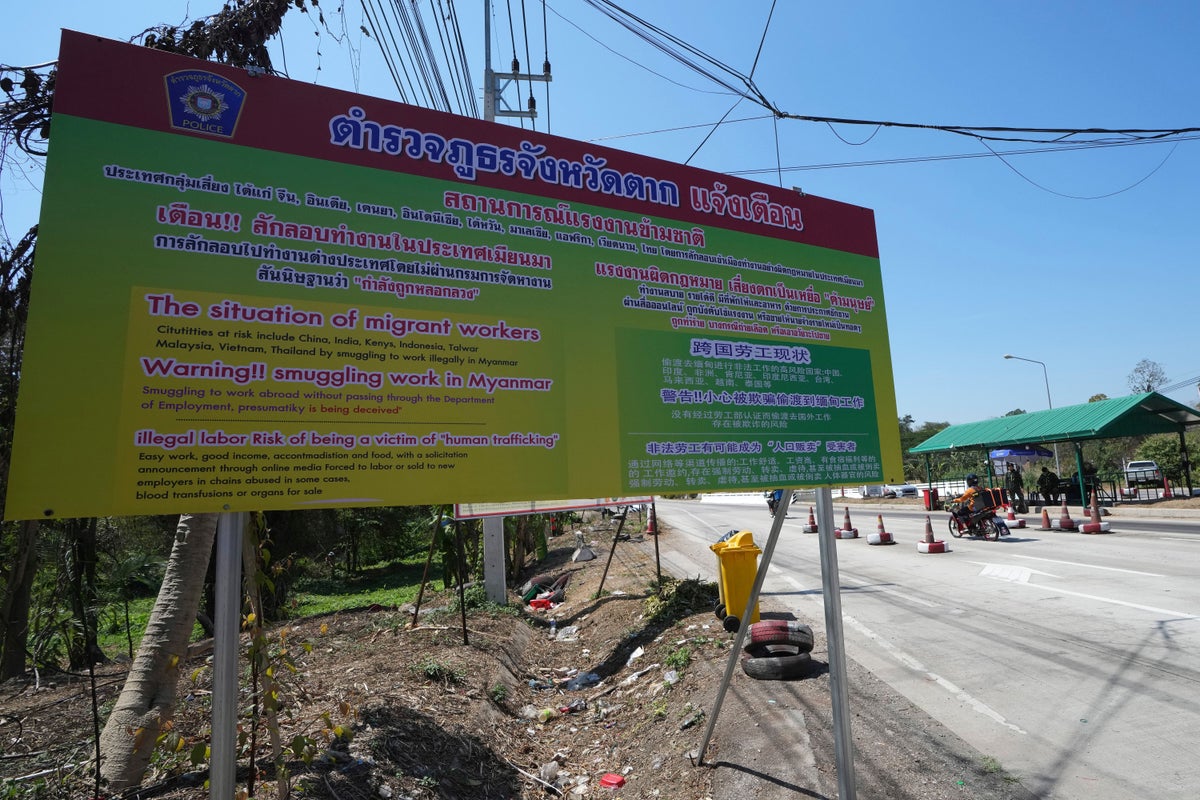
A Moroccan court on Tuesday sentenced a man to five years in prison for human trafficking.
It is the African nation’s first ruling against someone for luring people to work in a scam compound in Asia.
The case involved several young Moroccans who said they were attracted by an online job offer promising good pay in Thailand.
However, they instead found themselves trafficked to Myanmar and forced to work some 15,000 km from home, facilitating online fraud and scams.
The defendant, Nabil Moafik, denied the charges and called human trafficking a “crime against humanity” he would never commit.
The UN says some 120,000 people are trapped in “scam centres” and prosecutions are underway around the world to combat human trafficking to them. Several of the cases are making their way through Moroccan courts.
In Casablanca, victims present in court told the Associated Press they witnessed torture and other degrading treatment in the Myanmar centres. Some said they secured their release after paying ransoms in cryptocurrency, according to court documents provided by attorneys.
Prosecutors said Moafik ran a Facebook group helping Moroccan immigrants navigate life in Turkey. There, he posted an ad for call centre work in Thailand.
One person, Youssef Amzouz, responded. He was put in touch with another Moroccan who handled recruitment, interviewed and sent money to purchase a plane ticket to Malaysia.
A police report read out in court said Moafik introduced Amzouz to another Moroccan who later demanded that he either pay a ransom or recruit 100 other people to secure his freedom.
Moafik told the judge that Amzouz called him after leaving the scam compound, saying he was receiving treatment in a hospital for injuries sustained from torture.
“I was just a job mediator. I was getting between $21 and $107 for each person I recruited,” Moafik said. “I did not know that all of this would happen.”
The International Organisation for Migration, a UN body, says middlemen can be unaware they’re participating in trafficking, making prosecuting such crossborder crimes difficult.
The state prosecutor argued that Moafik’s aim was to profit from trading in goods, calling him “an essential element in the crime of human trafficking”.
Local news outlet Hespress reported earlier this year that Morocco’s foreign ministry had secured the release of 34 citizens trafficked to scam centres in Myanmar.
The ministry did not respond to emailed questions about the total number of Moroccans affected.
Shout-out for yodeling? Swiss seek recognition from UN cultural agency as tradition turns modern
Brazil's Lula puts forward new vision for protecting the Amazon rainforest
Lee Kuan Yew's youngest son slams Singapore's plan to preserve family home as national monument
Aid cuts are worsening Africa’s unsafe abortion crisis, researchers warn
Floods force 100,000 out of their homes – and the water in this city is still rising
Sudan’s paramilitary investigated over ‘war crimes’ as tens of thousands flee







